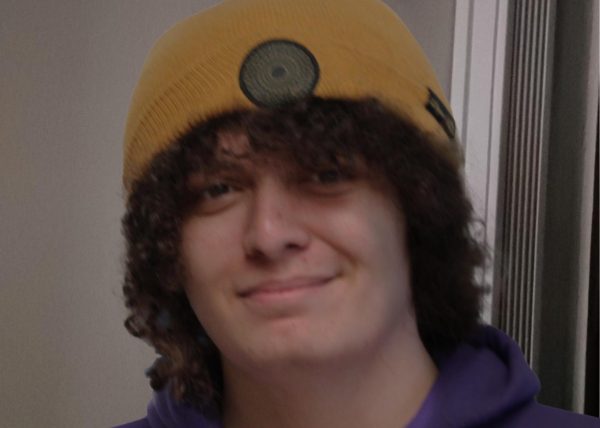For over a decade, Janette Snyder has served as one of Oakmont’s English and ELD teachers, teaching class after class with an appreciation for seeing student’s development and positive attitude.
Snyder’s particular focus on teaching English comes from her desire to teach real applicable skills that students need.
“I like building the critical thinking skills that I think we build in English, that I think are super important no matter what you’re gonna go into,” Snyder said.
Snyder worked at a few prior odd jobs, such as a bridal consultant, security guard, and swim instructor – all before she settled on being a teacher. Most notably, she was in the U.S. Army, where she developed her initial interest in teaching.
“I went into the army, and I learned my job, and I got good at my job, and then I [was] given trainees, so then I trained them,” Snyder said. “And then I kept getting asked to teach things in the army, and the entire time I was like… ‘What should I do after the army?’ [then] I was like ‘Hey dum-dum, go be a teacher, like, you literally spent five years teaching people.’”
Thanks to the ever-rotating cast of students entering and exiting the class, Snyder never finds herself bored or disinterested in her job.
“I firmly believe I will teach until it stops being fun,” Snyder said. “I have no poker face and [the students] are hilarious, and so I’m cracking up at least once a day, so I do really like my job.”
Part of the reason Snyder enjoys teaching high school so much has to do with the interactions and the relationships built with students, as opposed to typical relationships with coworkers at jobs.
“I don’t care for adults, because when adults do dumb stuff, I tend to be like ‘you’re an idiot, why’d you do that?’ but you guys are learning so when you guys mess up and stuff, I have a lot more empathy for teenagers than I do grown-ups.”
Snyder doesn’t waste time in her class and makes sure to keep her points and topics relevant to what her students need and their interests.
“I try my best to make it relevant to what everyone’s doing in their lives. When they’re like ‘why are we doing this,’ I don’t mind if kids ask me why because I will explain why we have to do it, because everything we do, believe it or not, has an actual purpose, even if sometimes you guys don’t see it.”
Snyder’s style of teaching her students can be summarized as a strategy of “just treating [students] like people.”
Of course, not all students are exactly cooperative in the classroom, and there will always be kids who go against the rules, but Snyder deals with these kinds of situations carefully and with empathy.
“When someones doing something wrong, I really try and like, tell them in a nice way before I just, like, jump on them, because I feel like when you jump on someone immediately they shut down and you’ve lost them.”
Snyder has always approached her job with enthusiasm and treats her students with respect, all for the ultimate goal of making sure students leave her class with a more open mind, and the critical thinking skills necessary to succeed in life.
“I think it’s important to try to get kids to surround themselves with other perspectives and see other points of view,” Snyder said. “Even if they don’t like, think differently, like who cares, just acknowledge that there are other viewpoints out there. I think that will help them in the future, just become better people, better humans.”









